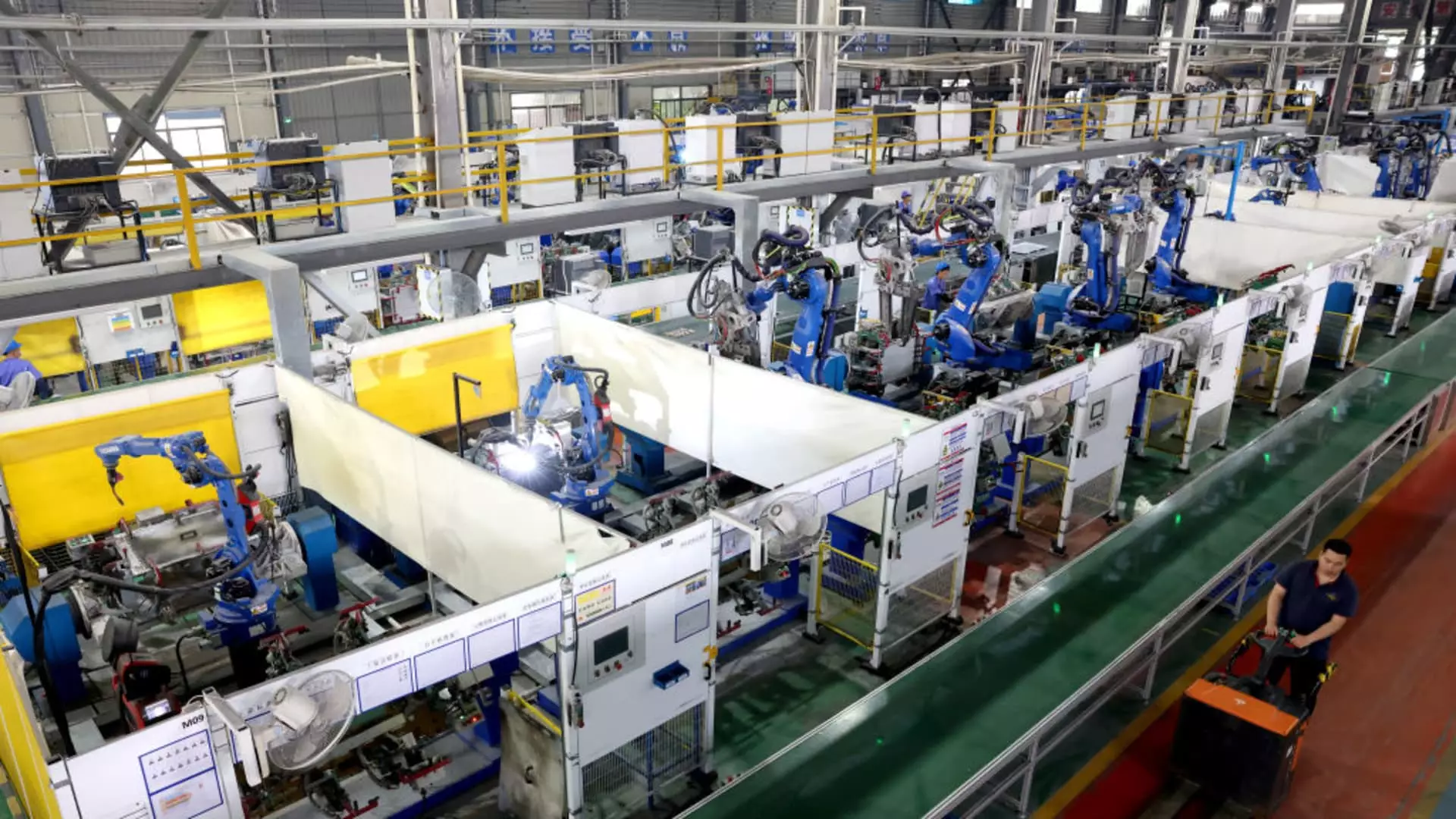European companies in China are grappling with a range of challenges as the country’s economic growth slows down and overcapacity issues rise. According to a recent survey by the EU Chamber of Commerce in China, businesses are finding it harder to turn a profit in the country. In major cities like Shanghai, companies have even reported delays in payments, as it has become increasingly difficult to enforce contracts compared to previous years. The chapter head, Carlo D’Andrea, highlighted that state-owned enterprises are postponing payments to gain defacto loans from smaller businesses, especially medium and small enterprises.
China’s growth has been on a downward trajectory in recent years, partially due to geopolitical tensions and a downturn in the real estate sector. The survey revealed that only 30% of European Chamber respondents reported higher profit margins in China compared to their global averages, marking an eight-year low. This decline in profitability is reminiscent of the crash in the Chinese stock market in 2015, along with a slowdown in the real estate market. Jens Eskelund, the President of the EU Chamber, expressed concerns about the duration and severity of the current economic slowdown, suggesting that the cyclical aspects could have long-lasting impacts on businesses operating in China.
One of the new questions included in this year’s survey was about the challenges members faced in transferring dividends back to their headquarters. While a majority of respondents reported no issues, a significant 4% said they were unable to repatriate profits, and approximately one-fourth mentioned facing difficulties or delays. It remains unclear whether these challenges stem from new regulations or standard tax audit requirements.
China’s economy has significantly expanded since 2015 and 2016, with heightened trade tensions with the U.S. prompting a renewed focus on manufacturing for technological self-sufficiency. Eskelund underscored that foreign companies’ ability to grow and profit in the Chinese market has weakened, noting that the correlation between profitability and China’s GDP figures is diminishing. He emphasized that the composition of GDP growth, particularly driven by domestic demand, is more critical for foreign companies than headline GDP figures.
Industry Overcapacity and Global Concerns
China’s emphasis on manufacturing and modest domestic demand has raised concerns about overproduction affecting profit margins. The survey indicated that over one-third of respondents observed overcapacity in their industries over the past year, with an additional 10% anticipating similar challenges in the near future. Industries such as civil engineering, construction, and automotive reported the highest instances of overcapacity, leading to price drops and reduced profitability. Eskelund emphasized that the issue of overcapacity is not limited to European companies but equally impacts Chinese businesses.
Chinese authorities have ramped up efforts to attract foreign investment, with recent policies like visa-free access for EU executives and tax exemption extensions aimed at facilitating international business activities. The market opening initiatives have benefited sectors like cosmetics and food and beverage, with nearly 39% of respondents citing improved access to the local market. However, restrictions on foreign ownership in certain industries and regulatory barriers continue to hinder the ease of doing business in China.
Challenges in Regulatory Environment
Despite some positive policy changes, the EU Chamber highlighted that China can do more to create a conducive environment for foreign companies. The latest survey revealed that a growing number of respondents are skeptical about their growth potential, expect intensified competitive pressures, and have doubts about profitability in China. Businesses are increasingly looking to cut costs, primarily by reducing headcount and marketing budgets, to navigate the challenging business landscape. Regulatory barriers remain a significant concern, with many respondents citing missed opportunities in China due to restrictive policies.
Ultimately, European companies in China are facing a complex set of challenges ranging from declining profitability and overcapacity issues to regulatory hurdles and economic uncertainties. As the Chinese economy continues to evolve, foreign businesses must adapt to the changing landscape and navigate existing barriers to sustain growth and profitability in the market.

